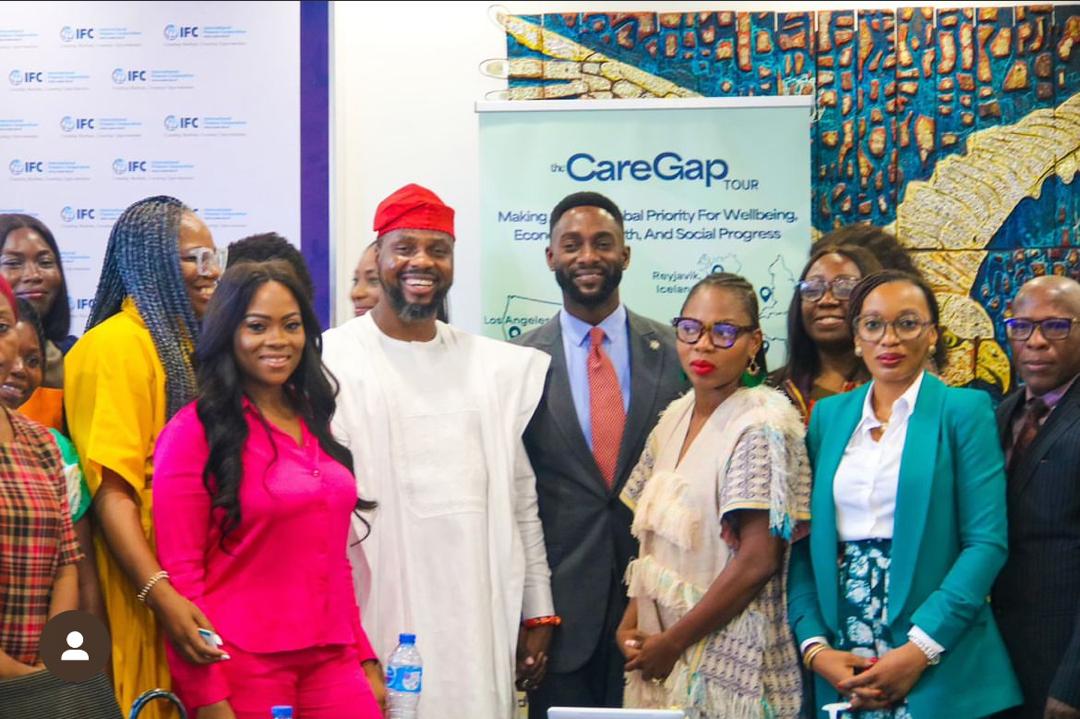 …Kicks off global Care Gap Tour
…Kicks off global Care Gap Tour
To advance economic growth by strengthening Nigeria’s childcare models and advance women’s economic power, Caring Africa through its Care Gap Tour has called on the key stakeholders in the public and private sectors to address the care crisis impacting families and workers around the world.
[ad]
Starting out in Lagos, the tour which will take stops Washington DC, Austin, Los Angeles, and London, gather thought leaders, policymakers, businesses, and care advocates to drive actionable solutions for closing the care gap.
At the Lagos stop held in collaboration with International Finance Corporation (IFC), it addressed the critical need for quality, affordable childcare and improving conditions for the care workforce.
According to IFC’s “Invest in Childcare” report, childcare responsibilities primarily revolve around young girls and women who already shoulder 75 per cent of the household and caregiving labour. With Only five per ent of Nigeria’s private sector employers invest in childcare despite 67 percent of working parents reporting that they were more productive at work when they had easier access to childcare.
Domestic care workers, including nannies and home caregivers, are often underpaid and work in precarious conditions, with little legal protection or opportunities for growth.
Founder of Caring Africa, (a Mother Honestly Group Inc. company), Blessing Oyeleye Adesiyan noted that the challenges of finding reliable, affordable, and quality childcare have been a silent crisis for women and the economy in Nigeria for far too long.
“Women, particularly working mothers, are scrambling daily to find the perfect nanny or care provider for their children. Yet, they are met with an unregulated and informal care market, one that lacks the necessary support and infrastructure to offer stability, safety, and consistency. There is little to no private or public investment in building sustainable childcare solutions that can truly meet the needs of Nigerian families.
“This gap in childcare not only affects families but has profound implications for the Nigerian economy. Women make up a significant portion of the workforce, yet many are forced to leave their jobs or reduce their hours due to a lack of reliable care for their children. This impacts women’s economic power, creating a ripple effect on households, communities, and the broader economy. When women are unable to fully participate in the workforce, the potential for economic growth is stunted.”
Also speaking at the event, Chief Executive office, Baby Lounge, Itoro Ugorji noted that with only five per cent of children in creches across Nigeria, it brings concern about the 95 per cent who do not have access to a proper creche as childcare is capital intensive. She noted that there is need for extended paid maternity leave to enable mums breastfeed properly and heal from birth and more importantly accessibility of creches as research has shown that families spend close to two hours, commuting to creche and back.
[ad]
For business leader and girl child advocate, Debola Williams noted that in engaging likeminds in the economics of care, it is important to speak from an economics perspective – from the gains and profitability that paying attention to care can bring.
“My job is to recruit a number of others, to believe in the cause, implement it, and also speak to other people about it. It’s always important that organisations like this ensure that they have the image of the target audience that would make this decision and implement as their ambassadors. We need to recruit more business leaders, both men and women, but a lot of men, because men for so long have been in that space of leadership in businesses. So, we need a lot of men to believe in the cause, and be able implement it.”
Paediatric consultant, Dr. Ayodele Renner, popularly known as thenoisynaijapaediatrician, said, “what society does with parents, specifically women, who for one reason or the other, are unable to care for their children directly and personally, is a discussion that we’re not having enough of. I think we always assume that every woman always has their mother, or their mother-in-law, neighbours or aunties around to care for their child, but that is not the case.”
He added, “sometimes, when I need to for instance admit an older child, one of the reasons the child’s mother would decline admission for the health of their own child, is because they have younger children at home, that nobody else can take care of. Unfortunately, that impacts on my decision as to how to care for not just the ill child, but for the mother and for the child that is at home.”
[ad]


